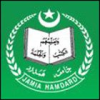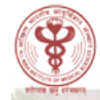How to become a General Practitioner
Overview, Courses, Exam, Colleges, Pathways, Salary

Overview
Who is General Practitioner ?
A general practitioner is a doctor who specializes in a variety of medical problems and helps patients coming from all age groups and cultural backgrounds. General practitioners, also known as primary care physicians, work in the healthcare sector and work on providing care and support to the patients suffering from chronic illnesses, performing the annual exams, and addressing the minor and major health concerns of the patients. The primary care physicians are quite patient and resilient in their professional front and handle the patients and their situations quite proactively. They also provide the patients' guidance and suggestions on a variety of health concerns and also refer them to specialists whenever necessary.
Typical day at work
What does General Practitioner do?
- To treat or prevent illness, disease, or injury, prescribe or deliver treatment, therapy, medication, vaccine, and other advanced medical services
- Order, conduct, and interpret tests and analyse records, reports, and examination data for patient’s diagnosis
- Collect, document, and preserve patient records, including medical history, notes, or results of examinations
- Track patient’s health and progress of patients’ conditions, and reassess treatments as appropriate
- Explain method, discuss test findings, and suggested treatments with patients
- Advise patients and community members on food, exercise, hygiene, and the prevention of diseases
- When required, refer the patient to medical professionals or other practitioners
- Collaborate and manage work with nurses, social workers, rehabilitation therapists, pharmacists, psychologists, and other health care providers
- Instruct and integrate nurses, interns, assistants, specialists, therapists, and other medical personnel’s activity
- Design, enforce, or prescribe health programs or guidelines for prevention or treatment of injury or disease in hospitals, industries, or communities
- Provide pre-natal and post-natal care and occasionally may deliver babies
- Operate or perform minor surgery to remove, restore, or enhance functioning of diseased or damaged body parts and systems of patients
- Train residents, interns, students of medicine, and other health care personnel
- Prepare government or organizational reports that consists of birth, death, disease statistics, staff evaluations, and individuals’ medical status
- Administrating general medical treatments like injections, immunizations, skin moles removals, wound dressing, stitches, etc.
- Staying abreast with the latest medical developments, new treatments, drugs, and medications, as well as with complementary medicine
- Arrange for hospital admission of patients when required
- Consult with pharmaceutical industry executives on the developments of new pharmaceutical products
- Perform administrative activities, such as signing repeat prescriptions, death certificates, and fitness certificates, and writing letters and reports
- Examine and question patients to conclude the nature of the disorder or illness and record the patient's medical information
- Recording births, deaths and reportable diseases to authorities in government.
Abilities and Aptitude needed
What are the skills, abilities & aptitude needed to become General Practitioner?
General Physician must have the knowledge and experience of providing general medical services across lifespan. They must be able to listen and communicate actively and attentively to the needs of the patients. They need to ask the right questions to interpret the information. They also regularly interact with other professionals and administrative staff. Thus, having good communication, in written and verbal as well as interpersonal skills is necessary.
They must be sensitive, calm, polite, patient, and empathic to patients’ needs and concerns. They need to make their patients feel comfortable and let them know they care, which requires them to have emotional intelligence.
To work with patient’s symptoms, they require analytical thought, problem-solving, judgement, and decision-making skills to determine best course of action. They must show dedication, eye for detail, determination, persistence to commit to years of intense practice. They need to efficient at team and time management as well as leadership and multitasking skills in order to care for various patients with different needs at the same time. They need to be highly organised, responsible, flexible, and observant.
They work with very sharp tools like syringes, thus they need to have manual dexterity as mistakes can have serious consequences. They must have self-discipline, spatial orientation, physical stamina, and physical dexterity as they spend a lot of time on feet.
Pathways
How to become an General Practitioner?
Entrance Exam
Entrance Exam for General Practitioner ?
Courses
Which course I can pursue?
Best Colleges
Which are the best colleges to attend to become an General Practitioner?
Industries
Which Industries are open for General Practitioner?
internship
Are there internships available for General Practitioner?
Career outlook
What does the future look like for General Practitioner?
A general practitioner mostly has their own private practice. However, some Primary Care Physicians choose to work in medical set-ups, such as private and government hospitals. They may also extend their services in community health programs. They may have to go for emergency visits at practice or patient’s home, thus, travelling is required.




.webp)


